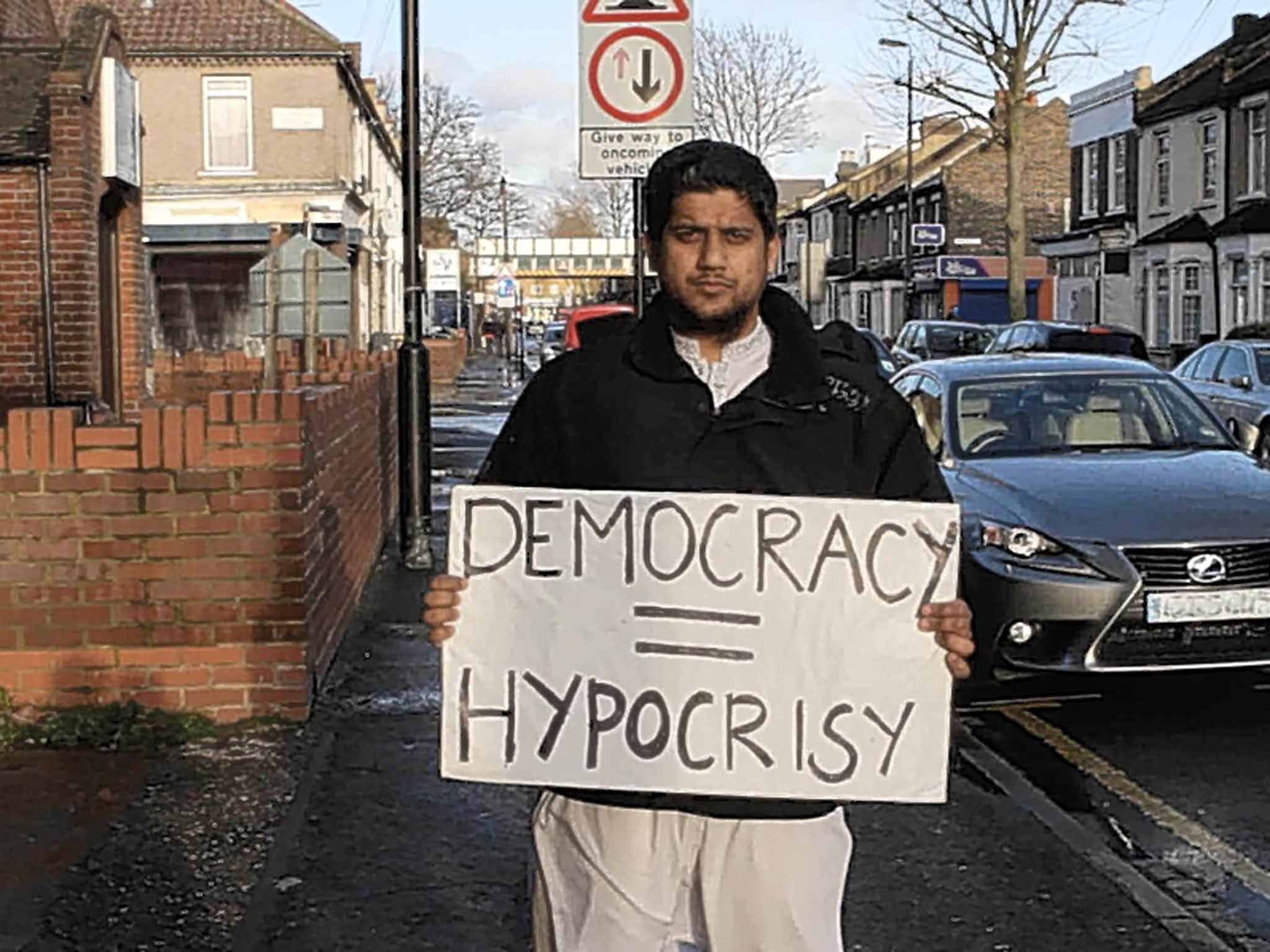The Jihadis Next Door, Channel 4 - TV review: The documentary showed a human side to dangerous characters
The film did well to raise so many questions about how to tackle radicalisation, even if the solution seems so complex

The thought that the Isis flag may one day fly over the Houses of Parliament may seem like a joke, but not for the radicalised Muslims featured in Channel 4's The Jihadis Next Door.
The film followed a group of Britain's most dangerous extremists for two years, giving unprecedented access into the bubbling undercurrent of home-grown terrorism. Documentary maker Jamie Roberts even spent time with Siddhartha Dhar (aka Abu Rumaysah), the former bouncy castle salesman who is now suspected to be the second “Jihadi John”. The father of four was shown rummaging around his messy north-east London garage before proudly revealing his Isis flag.
The views expressed in the film are only likely to add fuel to the Islamophobia fire raging in the wake of the recent Paris attacks and Isis beheading videos. The men featured want to enforce strict sharia law in Britain. Abu Haleema, who “enrages non-believers just by his beard” (and it was quite a beard), told the camera that people should be stoned to death in Britain for homosexuality, gambling, drinking and committing adultery.
But the documentary also showed a human side to these dangerous characters. Charismatic preacher Haleema, who has a huge following on YouTube, often spoke with comic effect. If he wasn't disappointed by the police confiscating his daughter's Mario Kart Nintendo game, he was showing off about using olive oil moisturising cream on his beard because “it smells nice like vanilla”.
The documentary avoided having an agenda about such an incendiary issue. When the extremist group preached in public, fellow Muslims were always shown speaking out against them. The radicals were also clever about evading any questions that could incriminate them. Although it was clear they all supported Isis, they never said so explicitly. Leader Mohammed Shamsuddin claimed that there is no freedom of speech in Britain, but the UK's liberal values have helped his group to thrive. The film did well to raise so many questions about how to tackle radicalisation, even if the solution seems so complex.
Subscribe to Independent Premium to bookmark this article
Want to bookmark your favourite articles and stories to read or reference later? Start your Independent Premium subscription today.

Join our commenting forum
Join thought-provoking conversations, follow other Independent readers and see their replies